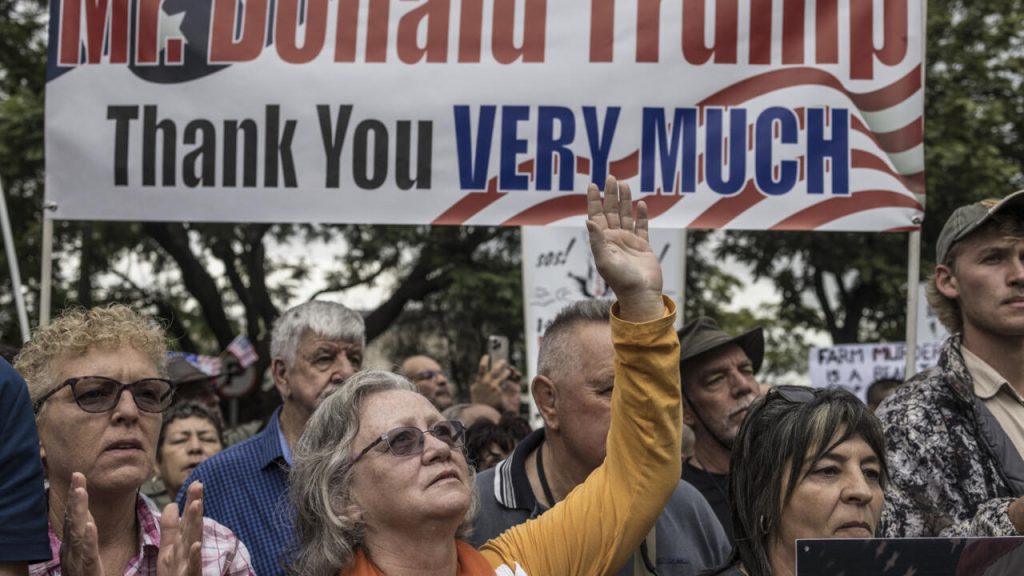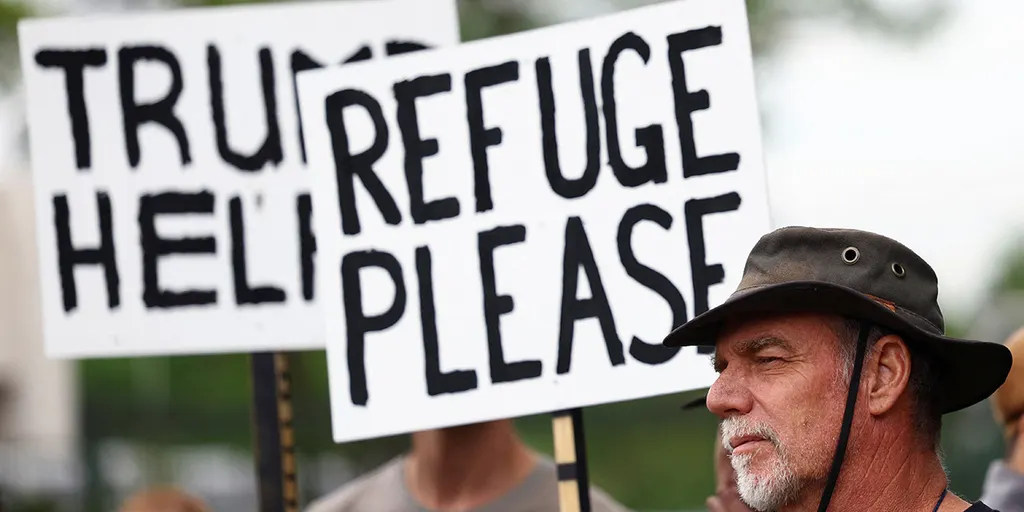The South African government has rejected claims that white Afrikaners face persecution, following the departure of a group of 49 white South Africans who have accepted resettlement in the United States under a program supported by U.S. President Donald Trump.
Speaking on Monday, South Africa’s Foreign Minister Ronald Lamola dismissed the allegations, stating unequivocally, “They can’t provide any proof of any persecution because there is not any form of persecution to white South Africans or to Afrikaners South Africans.”
The group left Johannesburg’s OR Tambo International Airport on Sunday aboard a chartered flight and is expected to arrive in the U.S. on Monday. Their resettlement follows President Trump’s controversial pledge to offer refugee status to white Afrikaners, who he claimed are victims of “racial discrimination” in South Africa.

Trump’s statements, which echo a long-debunked narrative of “white genocide,” have further strained diplomatic relations between Washington and Pretoria. Despite claims that white farmers are disproportionately targeted in violent attacks, official statistics show that the majority of murder victims in South Africa are young black men living in urban areas.
President Trump, who in February announced plans to “prioritise access to a refugee programme for Afrikaners in South Africa who are victims of unjust racial discrimination,” has come under fire for repeating the myth. His position is further complicated by his close ties to South African-born billionaire Elon Musk.
Lamola noted that many in South Africa, including some within the Afrikaner community, have repudiated these claims. “We are glad that a number of organisations, even from the Afrikaner structures, have denounced this so-called persecution,” he said.
White South Africans, who account for approximately 7.3% of the population, continue to enjoy significantly higher living standards than the country’s black majority. Historically, Afrikaner-dominated governments enforced apartheid—an institutionalised system of racial segregation and economic exclusion—that remained in place until the advent of democracy in 1994.


 Trending
Trending 